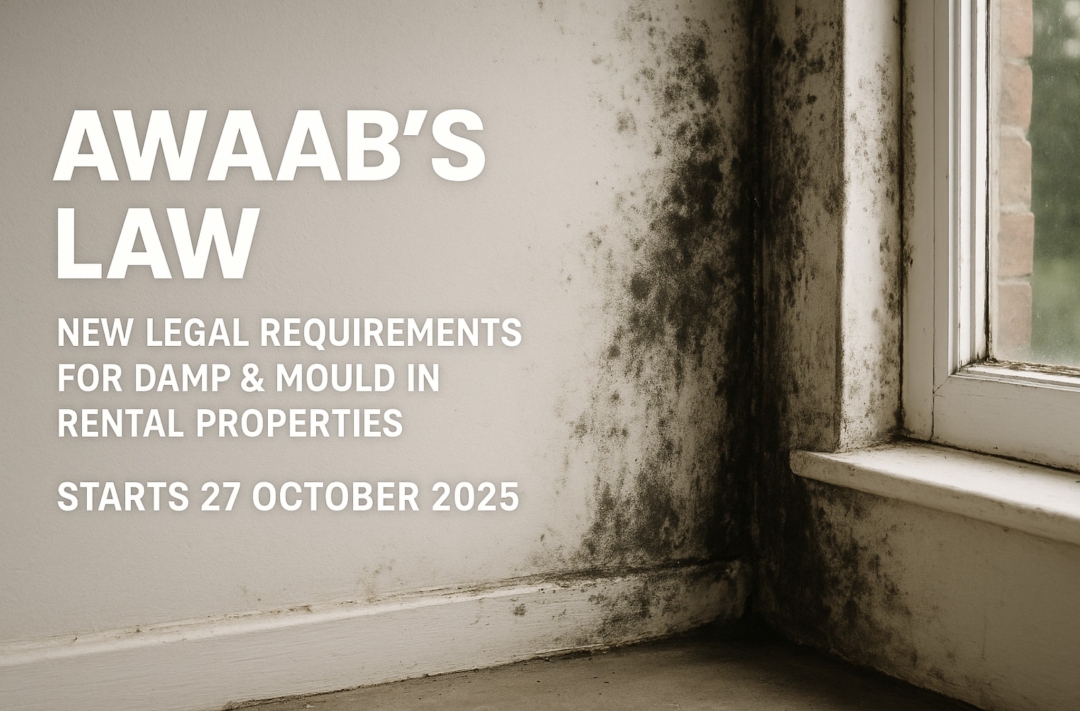27 October 2025 marks a significant milestone in housing health and safety regulations
As Awaab's Law comes into force on 27 October 2025, property maintenance specialists across England are reporting notable increases in enquiries related to damp and mould remediation, signalling growing awareness of the new requirements among social landlords and housing associations.
The legislation, introduced under the Social Housing (Regulation) Act 2023, establishes strict timeframes for registered providers to investigate and address damp and mould issues in the social housing sector. Industry observers note that the regulations represent the most substantial change to housing health and safety protocols in recent years.
Cleanup Team, a cleaning company specialising in black mould removal, has observed a 340% increase in enquiries from social landlords over the past six months. "The pattern we're seeing reflects a broader industry shift," notes the company's operations director. "Housing associations and registered providers are taking proactive steps to assess their properties and understand their legal duties under the new requirements."
Understanding Awaab's Law
Awaab's Law requires social landlords to investigate hazards within defined timescales and take appropriate action to ensure tenants' homes remain safe. For emergency hazards, including damp and mould posing imminent significant risk, landlords must respond within 24 hours. The draft guidance specifies that investigations must be completed within 10 working days, with remedial works following a phased approach: temporary measures within 5 working days and permanent repairs within 12 weeks.
The legislation applies the housing health and safety rating system to assess 29 categories of hazards, excluding overcrowding. These include excess cold, fire risks, structural collapse, electrical hazards, and various health risks associated with poor housing conditions. Social landlords must provide tenants with a written summary of investigation findings and keep tenants updated throughout the process.
According to government data, approximately 5% of dwellings in England had damp problems in 2023-24, marking the highest level recorded in several years (GOV.UK, English Housing Survey). The prevalence varies significantly by tenure: private rented sector properties show damp problems in 9% of dwellings, social rented in 7%, and owner-occupied in 4%.
Scale of the Issue
Recent research indicates that around 2 million people in England live in homes with significant damp and/or mould (UK Health Security Agency). The "Mouldy Nation Report 2025" found that over 60% of UK residents have experienced mould in their homes at some point, with 31% reporting it as an ongoing issue (Landlord Today).
Citizens Advice data reveals that nearly 45% of private renters in England report damp, mould or excessive cold in their homes, with approximately 48% of these individuals having lived with the problem for over a year. The health implications are substantial, with damp and mould exposure associated with respiratory infections, asthma, and allergic conditions.
Industry Response and Preparation
The property maintenance sector has seen considerable activity as October 2025 approaches. Social landlords have been reviewing their housing stock, conducting assessments, and establishing procedures to meet the required timescales under the new regulations.
The legislation's emphasis on emergency repairs for serious hazards has prompted many housing associations to develop rapid-response protocols. Where properties cannot be made safe within the specified timeframes, landlords must offer suitable alternative accommodation at the landlord's expense until remedial works are completed.
"What we're observing is a fundamental shift in how the sector approaches housing hazards," explains a housing consultant who has worked with multiple registered providers. "The new rules require landlords to maintain detailed documentation of investigation findings, remedial works, and communication with tenants. This represents a significant administrative undertaking alongside the physical safety works themselves."
The draft guidance, which registered providers have been studying in preparation for implementation, covers a wider range of scenarios than many initially anticipated. Beyond damp and mould, the regulations address electrical safety, unsafe electrics, personal hygiene facilities, food safety provisions, and structural concerns. Where additional hazards are identified during investigations, landlords must address these under the same framework.
Implications for the Social Housing Sector
Housing health experts note that Awaab's Law reflects lessons learned from tragic cases where tenants suffered prolonged exposure to hazardous conditions. The legislation requires reasonable endeavours from landlords to complete investigations and implement solutions, with potential legal action where landlords fail to meet their obligations.
The phased approach to remediation acknowledges that some repairs require extensive work while ensuring immediate steps are taken to protect tenants. If remaining hazards persist after initial safety works, the guidance requires ongoing monitoring and additional measures.
Some registered providers have reported that preparing for the new requirements has revealed the extent of maintenance backlogs across their housing stock. Properties with poor energy efficiency ratings appear particularly vulnerable, with research indicating that homes with EPC ratings D-G are 73% more likely to experience dampness (SilverOak Solicitors).
Market Observations
The surge in enquiries reported by maintenance specialists like Cleanup Team appears to reflect a wider pattern across the sector. Industry data suggests that many social landlords have increased their maintenance budgets in anticipation of the new legislation, with particular focus on addressing damp and mould issues before they escalate to emergency hazards.
"We're receiving enquiries at all stages of the process," observes Cleanup Team's technical team. "Some are precautionary assessments, others are urgent interventions, and many involve documentation and reporting requirements under the housing health and safety rating system. The common thread is recognition that these regulations demand a systematic, documented approach."
The company notes that enquiries increasingly involve requests for detailed reporting that landlords can use to demonstrate compliance with investigation concluding requirements and provide written summaries to tenants.
Looking Forward
As force on 27 October approaches, attention is turning to how effectively the new requirements will be implemented across the social housing sector. While initial indications suggest strong engagement from registered providers, the true test will come in the months following October 2025 as the regulations are applied to real-world situations.
Industry observers expect that lessons learned from the social housing sector may eventually influence approaches in the private rental market, though no formal extension of Awaab's Law beyond social housing has been announced.
For tenants living in social housing, the legislation represents enhanced protections and clearer expectations about how quickly their landlords must respond to damp, mould, and other housing hazards. The requirement for landlords to keep tenants updated throughout investigations and repairs aims to improve communication and transparency.
As the property maintenance sector adapts to the new landscape, the emphasis remains on ensuring that the importance of housing health and safety is reflected not just in regulatory compliance, but in meaningful improvements to living conditions for those in social housing across England.
About Cleanup Team
Cleanup Team is a specialist cleaning company based in the North East, specialising in black mould remediation and damp treatment services for residential and commercial properties.
Media Contact
Company Name: Cleanup Team
Contact Person: Faye Mac
Email: Send Email
Phone: 0800 086 2827
Address:12B Elsdon Rd
City: Newcastle upon Tyne
State: NE3 1HY
Country: United Kingdom
Website: https://www.cleanup-team.uk







